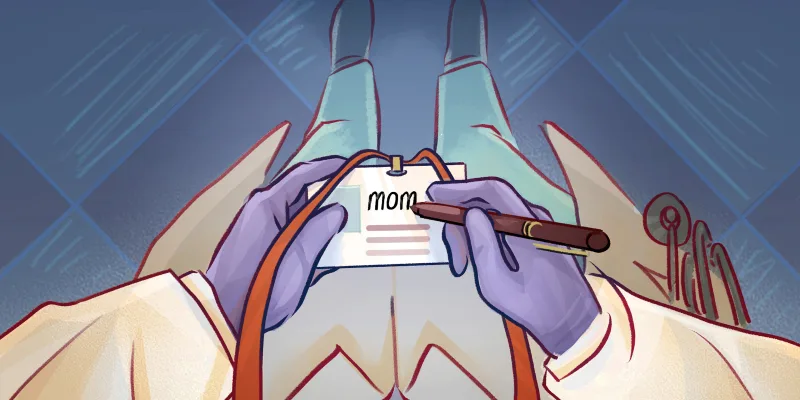 Case:
Case:
A 24-year-old male with a medical history significant for chronic indecision presents with three weeks of progressive stress.
The patient, a medical student who recently began his third year of medical school, has developed confusing worry during his rotations. During this time, he has had close contact with other medical students. He reports that he feels well-prepared for his role as a medical student. However, he concedes feelings of stress whenever he forgets an aspect of the physical exam or history of present illness. The patient rationalizes that this is normal for medical students on their first rotation, but wonders how he will develop the knowledge and skill to be an effective physician. He remarks that “there is so much to know.”
He admits to weaknesses, such as difficulty utilizing knowledge garnered from the first two years of medical school in a clinically significant way, despite mastery of that knowledge. When questioned about his ability to cope during his rotation, he reports specific tense patient encounters but easily shrugs them off as “outside the scope” of what is expected of him. He understands that all medical students “deal with these things” and reports being able to “step away” from the situation if necessary.
Upon examination, the patient does not appear to be in any significant distress. He displays an adequate fund of knowledge. He is oriented to person, place, and time. He can effectively follow commands. Question-raising reflexes are brisk. He achieves a three out of three on recall in the clinic when prompted by the attending physician.
Based on history of present illness, the patient was diagnosed with Imposter Syndrome following diagnostic feedback administered by the attending physician. This was met with resistance. The patient denied “imposter” feelings and left against medical advice.
The patient later returned seeking formal treatment following a confirmatory second opinion by an outside provider. Cognitive behavior therapy was initiated promptly.
Discussion:
Imposter Syndrome (IS) is caused by a virus often endemic in the medical student population. Consequently, clinicians must have a high suspicion for IS, especially in medical students. While medical students are especially at risk, other healthcare providers are also at risk. The disease is highly contagious, often spread via respiratory droplets and direct contact. IS can often be asymptomatic or exhibit a latency period lasting any length of time. It is well known that patients can still spread the virus while asymptomatic or in the latency phase.
The disease is characterized by feelings of inadequacy; patients feel that they are tricking others and undeserving of their current position, role, or status. Core to IS is the feeling of inadequacy. Atypical Imposter Syndrome (AIS) often lacks the feelings of trickery, fraudulence, dishonesty, or shenanigans. A patient with AIS may be confident in their current role, often as a student or trainee. Often these patients rationalize their current state by comparing themselves to others. Nevertheless, feelings of inadequacy persist upon self-reflection as to the patient’s future roles as intern, resident, and physician. To these patients, the task of progressing and improving seems insurmountable. Such patients might not feel like “imposters” in the present moment.
Signs and symptoms of AIS cover a broad spectrum and can include: a seemingly reassured sense of self, misperceptions of others, and unrealistic expectations of oneself. Patients may easily dissociate from complications deemed out of their control, and feel guilty for their excitement about novel pathologies with distressing impact on others. Such patients might feel mentally but not emotionally adequate for their positions. Some patients may struggle with learning to make clinical use of “book” knowledge. Some patients may exhibit learned helplessness or overt denial in the face of career self-improvement goals.
Caution should be taken when giving a diagnosis of IS, especially in atypical cases. IS is often chronic and many patients have learned to live with the disease. Indeed, initial diagnosis of IS, especially the atypical variant, can be met with resistance and denial by the patient. Finally, IS is often associated with obsessive compulsive disorder, as well as anxiety and depression. It is also often associated with certain personality types. Thus, it is important to screen for these comorbidities. Treatment consists of reassurance. In refractory cases, cognitive behavioral therapy may be warranted. Patients, especially medical students, should be counseled regarding expectations—both those they have for themselves and those attributable to others.
Image by Darren Whittingham / Shutterstock
Will is a third-year medical student at Drexel University College of Medicine. He is currently rotating at Allegheny General Hospital in Pittsburgh. In his free time, he enjoys annoying his friends and family with silly puns and esoteric musical theatre.






